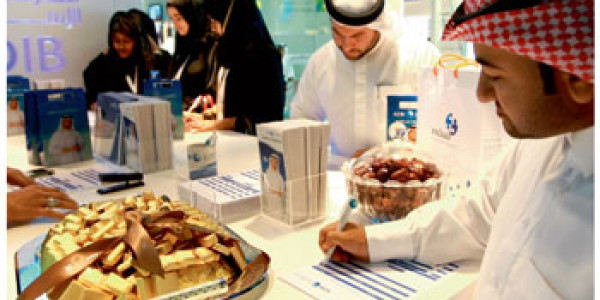Private sector beckons Emiratis 29 April 2013 It will remain to be seen following Careers UAE 2013 if private employers can lure Emiratis away from the honey-pot perceived to be the government sector. The three-day recruitment, education and training event, for UAE nationals only, kicks off on April 30 at the Dubai World Trade Centre. Now in its 13 th year, it will help connect Emirati graduates and job seekers with more than 150 employers, educational institutions and professional bodies. Careers UAE exhibition manager Asma Al Sharif said the event would continue to act as a catalyst for Emiratisation, aiding the Ministry of Labour’s target of helping more than 20,000 UAE nationals get recruited. There had been a seven per cent increase in the number of private sector exhibitors, which reflected the growing involvement of the business community in Emiratisation efforts — and they expected healthy visitor numbers to match that, Sharif said. Majid Al Futtaim Holding human resources vice-president Mohammed Malek said local employees were integral to the group’s long-term success. Emiratis made up 15 per cent of their UAE workforce, across all areas including asset management, malls, human resources, hospitality and customer service. Rather than focusing on the number of UAE nationals appointed across departments, the company measured their successful employment of locals based on “quality hires” and the number of years the person served with the company. The trick to attracting them to the private sector was tailored development programmes and training initiatives to help them along the career ladder, Malek said. “The new generation of Emirati youth is very ambitious and well-equipped to face the demands of the job market. They have received quality education and training that has enhanced their professional appeal, and they are also starting to realise the value in career opportunities offered by the private sector.” Meanwhile, 60 per cent of Dubai Aluminum’s (Dubal) senior management are Emiratis, and the company has an average target of maintaining 100 UAE national employees each year. Dubal human resources and organisation effectiveness vice president Sultan Al Sabri said engineering roles were still hard to fill, due to a lack of trained professionals in the market and stiff competition from other competitors in the industry. Bayt.com sales vice president Suhail Masri said the only thing that gave Emiratis priority over expats was if they were applying to a job strictly open to nationals as per the Emiratisation law. A 2011 Bayt.com poll revealed only about half of MENA companies adhered to a localisation hiring policy, and one-third reported having senior-level Emirati employees. On a positive note for Emiratis, they tended to enter companies at varying, and sometimes higher, levels, with 20 per cent of respondents saying most locals joined at an intermediate level, 21 per cent at a senior level, and 24 per cent at entry level, Masri said. About 30 per cent of respondents cited faster promotions for Emirati nationals than non-Emiratis, while a quarter said career trajectories were similar. Bayt.com currently has more than 107,000 Emirati job seekers, however Masri said it was hard to say how many were looking at the private sector. And while the company’s January job index showed multinational private sector companies would be hiring the most this year, a survey late last year still showed 68 per cent of UAE professionals preferred the public sector. A quarter of respondents said the government and civil services attracted the highest proportion of local talent in the UAE, up one per cent from the same survey in 2011. Oil, gas and petrochemicals, and then banking and finance, were the next preferred. The best salary packages lay in the oil, gas and petrochemical industry, followed by airline, government, and banking and finance. Despite this, last year’s survey showed women in the UAE were most attracted to education and academia, healthcare and medical services, and media. Sharif said UAE nationals had “virtually unlimited” options to find a job in their preferred field. The labour market was becoming more knowledge-based, meaning more opportunities in innovation-centric industries like Information Communications Technology (ICT), aviation, oil and gas, digital media, finance, transportation, and education, he said. “Choosing the right career path will contribute to their job satisfaction, which in turn will boost their productivity in their eventual positions. That is why this face-to-face interaction between employers and job seekers plays such a pivotal role in advancing the government’s Emiratisation initiative.” Alternative careers in the arts industry were also being highlighted at the fair by urban lifestyle magazine Brownbook, which has arranged for creative institutes, companies and galleries to provide talks, performances and workshops. Other features include the Emirati Women Leaders Panel, a CV clinic by Bayt.com, and a LEGO and Metaphor Training session teaching visitors how to harness the full potential of their creative thinking. Careers UAE also supported the Absher Initiative, which encouraged private sector employers to offer a wide range of incentives targeted exclusively at UAE national candidates, and the Shaikh Majid bin Mohammed UAE Nationals Training Initiative, which gave locals management experience in leading national and international companies, Sharif said. sarah@khaleejtimes.com Taylor Scott International
Private sector beckons Emiratis

This entry was posted in Dubai, Education, Investment, investments, News, Taylor Scott International, TSI and tagged dubai, education, investments. Bookmark the permalink.







